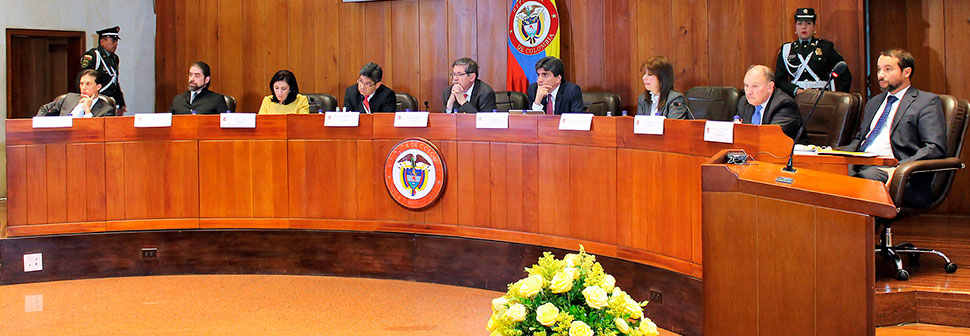Peace in Colombia comes in slow motion


The Colombian peace process has been praised for its historical significance. On the same spirit, the Colombian president Juan Manuel Santos was awarded the Nobel Peace Prize for his role in the agreements. While the process has been difficult –Colombians voted against the peace agreements in a plebiscite made last October–, the president’s cabinet has done everything to move forward with the execution of the second version of the agreements.
Last year, once the new agreements had been drafted and signed by the government and the FARC leaders, president Santos worked to accelerate the implementation of the most important points of the agreement. His efforts materialized in the approval of “fast track”, a political device that allows halving the time to process legal and constitutional reforms. So far, despite of this political mechanism, the “fast track” has only allowed the approval of a quarter of the bills necessary to move forward with the demobilization of guerrilla fronts. Now, after a rule made by the Constitutional Court, the process could get even slower.
The Centro Democrático party, led by ex-president Álvaro Uribe, along with senators from other parties, filed a lawsuit against the “fast track” arguing that it goes against the deliberative power of the Congress and it affects the balance of powers. Now that the Constitutional Court has supported the lawsuit, each remaining bill (previous bills won’t be affected by this ruling) has to go through a more thorough debate and will need the support of government allies.
As a recent analysis from Revista Semana states, the arguments presented by Centro Democrático are, in fact, a valid reason to doubt the validity of the mechanism. By rushing the approval of bills, the government could be benefiting some segments of the population at the expense of others. However, the analysis also says that senators could use the debates to get more exposition, anticipating the presidential elections of 2018. If this is the case, Santos’ cabinet should do its best to control the length of public debates.
Aside from slowing down the peace process, the ruling made by the Constitutional Court could have a more dangerous consequence. Initially, the revolutionary forces FARC were optimistic about the peace agreements. People and the media appeared to be supportive. However, the plebiscite came and the negative results brought their confidence down. This ruling, it appears, is having the same effect. Before this happened, FARC were supposed to hand in their weapons on May 31st. Now, the credibility between the government and the revolutionary forces seems to be at risk.
While FARC has reason to doubt the peace process, analysts agree that they should carry on with the process as it was planned and trust on the efficiency and unity of the government. If it goes well, peace will be legitimized. If it goes awry, Colombians should prepare for an uncertain 2018.
LatinAmerican Post | Juan Sebastian Torres





